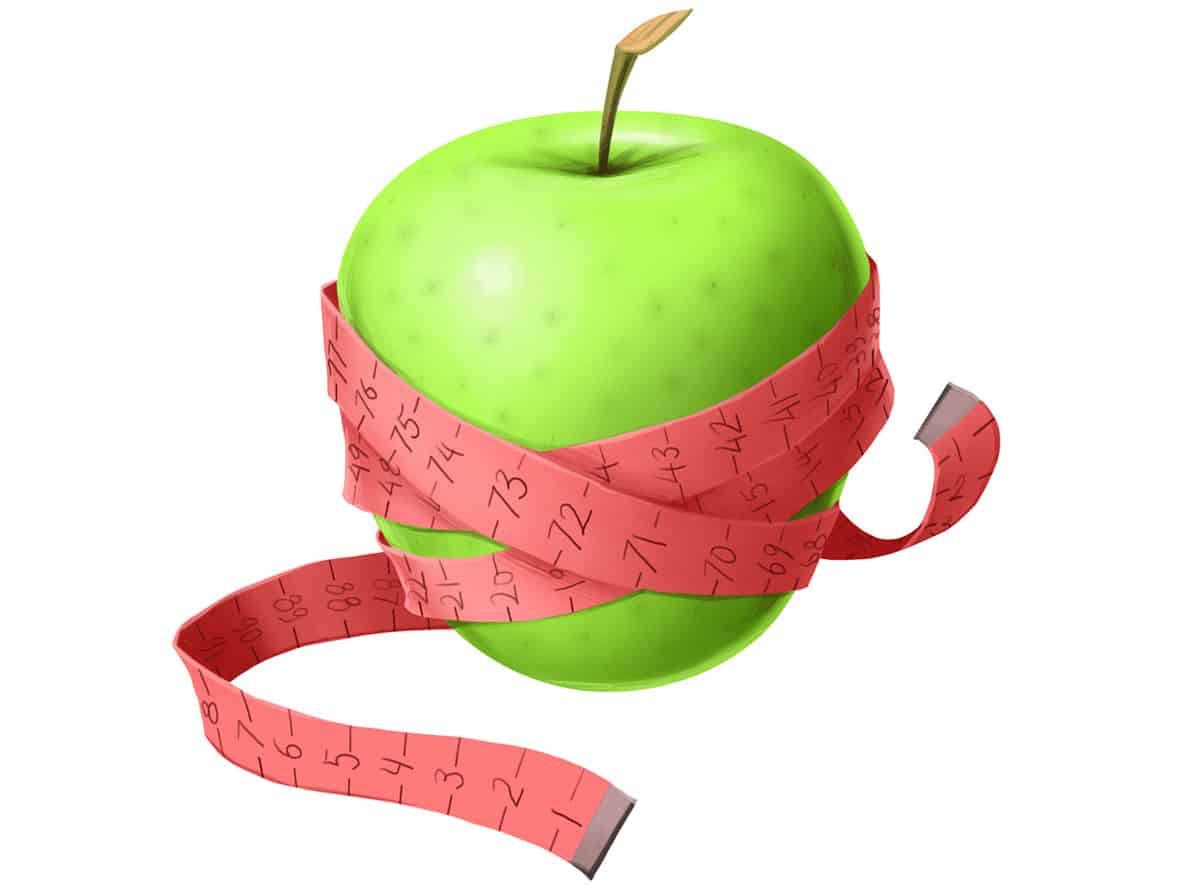Weight loss in a pill: it’s a tempting promise, and not just because it’s easier than dieting. Imagine what we could collectively get done if we could just take a pill to deal with our fat cells and then forget about it and spend that energy somewhere else - we would have cured cancer five times over by now!
Unfortunately, the weight-loss drugs that actually exist fall a whole lot short of that imaginary future. When you combine them with typical calorie-counting diets, you get better results than the calorie-counting diets alone, but that’s not really saying much because traditional calorie-counting diets are already really miserable and not super effective. Even put together, calorie-counting + drugs still don’t stand up to Paleo without drugs.
So here’s the argument for why Paleo is a better plan for long-term weight loss - not because it’s “more natural” or somehow shows moral fiber and willpower, but because it gets better results. This isn’t about passing judgement on pharmaceutical solutions or the people who try them: it’s totally understandable to want an easier solution. But the weight-loss drugs we have right now just don’t deliver that. It’s not about “laziness” or “willpower;” it’s about results.
Weight-Loss Drugs: a Quick Introduction
For anyone who hasn’t looked into this, here’s a lightning round of introductions to the weight-loss drugs sold in the US:
- Orlistat (sold as Xenical or Alli)
- Lorcaserin (sold as Belviq)
- The combination of phentermine and topiramate (sold as Qsymia)
- The combination of naltrexone and bupropion (sold as Contrave in the US and Mysimba in the EU)
Some of these drugs work by suppressing appetite; other drugs work by preventing you from absorbing the food that you eat. All of them are designed to work with diet and lifestyle changes, not on their own. To repeat, because this is important, all the studies on weight-loss drugs are on drugs + dieting (typically standard calorie-counting diets), not drugs alone.
With all that said, here’s a look at 4 ways Paleo leaves existing weight-loss drugs in the dust, from the rate of the weight loss itself to the side effects to the fringe benefits like blood sugar control.
1. Paleo Beats Drugs for Weight Loss

The whole point of weight-loss drugs is...weight loss. But actually, the results are pretty underwhelming, especially considering that the drugs are always studied in conjunction with a weight-loss diet. So these results aren’t just from taking a pill: they’re from radically changing your whole diet on top of the pill.
Here’s the average weight loss over 1 year for some common weight-loss drugs, when combined with a standard calorie-restricting diet:
- Orlistat: about 7 kg (15 pounds)
- Lorcaserin: about 5 kg (11 pounds)
- Phentermine + topiramate: about 9 kg (20 pounds)
- Naltrexone + bupropion: about 5-6% of body weight (if you weighed 300 pounds to begin with, that would be 15-18 lbs)
(data for orlistat, lorcaserin, and phentermine/topiramate from this study. Data for naltrexone and bupropion from this study and this one.)
This study looked at women eating Paleo over 2 years. After 1 year, the average weight loss was about 9 kg (20 lbs), or about 11% of body weight. So at least in this study, Paleo alone was just as effective as the combination of a strict diet and the most effective weight-loss drugs.
It would be really great to have more studies on Paleo - this one study was pretty small and only in women, so it’s not as good as the studies of weight-loss drugs that have a lot more subjects and also tested the drugs in men. Since Paleo is still pretty new, there just isn’t a lot of long-term research, but other studies of low-carb diets, Mediterranean-style diets, and other diets with similarities to Paleo also back up the idea that a Paleo approach is more effective than the calorie-cutting + weight-loss drug strategy.
2. Paleo Beats Drugs for Blood Sugar Control
Lorcaserin has also been studied for improving blood sugar control: in this study, 1 year of lorcaserin reduced fasting blood sugar and HbA1c (a measure of long-term blood sugar control) more than placebo. Fasting blood sugar dropped 38mg/dL on lorcaserin vs. 26 mg/dL for placebo; HbA1c dropped 1.3% on lorcaserin vs. 1% on placebo. Another study found very similar numbers.
Now enter Paleo: here, just 3 months of Paleo resulted in a 4% drop in HbA1c. Long-term studies on Paleo specifically just haven’t been done, but this study of a low-carb Mediterranean diet (very similar to the way most people eat Paleo) found an HbA1c drop of 2% over a year. In this study of a 20% carb diet, subjects dropped their HbA1c from 8% to 6.1% (1.9% drop) in just 6 months. So compared to drugs, research shows that a Paleo-style low-carb diet is as good or better for improving blood sugar control.
3. Paleo Doesn’t Come with Serious Side Effects
Another big benefits of Paleo over drugs is the lack of serious side effects.
Orlistat is the most notorious of the weight-loss drugs for sheer side effect horror value. [WARNING: sensitive stomachs, turn back now]. The drug works by preventing your digestive system from absorbing fat, but all the fat that you’re not breaking down and digesting has to go somewhere, and the result isn’t always pleasant. As this review put it, “the use of orlistat has been associated with several mild-to-moderate gastrointestinal adverse effects, such as oily stools, diarrhoea, abdominal pain and faecal spotting.”
For something more prosaic, take this study on naltrexone/bupropion. 34% of people in the treatment group complained of nausea; 24% got headaches; 24% were constipated; 15% got dizziness; 11% had vomiting problems. This study looked at lorcaserin and phentermine/topiramate, which are approved in the US (pending follow-up safety trials that are way behind schedule) but not approved in Europe because…
“The drugs have been associated with serious harms: Both drugs’ labels include warnings about memory, attention, or language problems and depression; for lorcaserin, the label also warns of valvular heart disease and euphoria; and for phentermine-topiramate, the label warns of metabolic acidosis, increased heart rate, anxiety, insomnia, and elevated creatinine levels.”
Then there are the mental health issues. Rimonabant, marketed as Acomplia or Zimulti, was approved in Europe in 2006 but withdrawn in 2008 because - whoops! - it made people more depressed and more likely to kill themselves.
Another drug, sibutramine, was sold for years in the US and is still available in several other countries, but has been withdrawn in most of the industrialized world (including the EU, the US, Canada, and Australia) because it increased the risk of cardiovascular events.
All of these side effects might be acceptable if these drugs were the only known method of treating some horrible disease. If you had aggressive brain cancer, you might be perfectly willing to put up with memory and attention problems caused by a lifesaving drug (people do that all the time: it’s called chemo). But the cost-benefit calculations are a little harder to work out when the benefit is so lackluster. It’s not like you get to eat what you want and still lose weight when you take these drugs - you still have to go on a diet. So considering that Paleo gets the same results as a typical diet + drugs, and that Paleo actually helps to treat problems like diarrhea, brain fog, and insomnia instead of causing them, why not just go with Paleo and skip the side effects completely?
4. Paleo is Less Expensive
A 2014 study counted up the cost of some common weight-loss drugs:
- Lorcaserin: $1,743
- Orlistat: $1,518
- Qsymia: $1,336
That’s just the cost for the drugs, not counting any changes in people’s grocery bills as they went on their new diets to go with the medication.
With weight-loss drugs, you have to pay for healthier food and also pay for the drugs. With Paleo, you just have to pay for the healthier food, and you get the same amount (or more) of weight loss. The price for every pound lost is a lot lower with Paleo than it is with a low-calorie diet + weight-loss drugs.
If you really have an extra $1500 or so to throw around on your weight loss, why not eat Paleo and also…
- Buy a gym membership...for a couple years. Or start a home gym!
- Buy a really nice bike and take up bike commuting
- Go on vacation and justify it as stress management
- Pay off some debt for instant stress/cortisol reduction
If you have that money to throw around, there are a million ways to get more weight-loss bang for your buck than by spending it on drugs.
At Least for Now, there’s a Clear Choice.
In the future, maybe we really will have effective weight loss in a pill. But if that happens, we can all worry about it then. In the meantime, a nutrient-dense diet that’s actually appropriate for the human species still outperforms weight-loss drugs, even when they’re combined with calorie-counting.






Leave a Reply